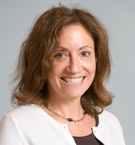Professional Profile: Ronna Fried Ed.D

PhD, PsyD, EdD, LCSW, LMHC, MD. This list represents just a few of the credentials mental health professionals may possess. But, before beginning my work at O’Connor Professional Group, most of these would have seemed like nothing but nonsensical strings of letters. Like most young people just about to enter college or graduate school, I knew little to nothing about the reality of the professional world. So, OPG offered me the opportunity to talk to a variety of researchers, clinicians, psychologists, and professors in order to get a sense of what it means to pursue a career in addiction services and mental health. Mind you, I am under no illusion that just because I now know the different between a LCSW and a PsyD, I have the entire professional world figured out. But, simply getting the chance to talk to individuals like Ronna Fried has given me some sense of the different paths that can be taken and the personal stories of those who got there.
*****

After focusing the beginning of her career exclusively on this mission by working hands on with children, families, and communities at her clinic, Dr. Fried discovered that she might be better able to reach larger numbers of people by focusing her energies on research. She found that publishing articles, information, and discoveries could more effectively and efficiently provide answers to questions for teachers, families, and health professionals alike. Thus, today, she works approximately four days a week conducting research on adolescent ADD and ADHD at Mass General Hospital (MGH) and the remaining day working at her private practice. She explained that she finds it necessary to maintain a balance between research and clinical work because if you focus exclusively on research “you lose sight of what you are looking toward. [Working directly with patients] accomplishes that.”
Dr. Fried’s research spans a wide array of topics from how the brain and functioning can affect people’s lives to how medication can assist in tasks such as work and driving for adults with ADHD. The work she does at MGH focuses less specifically on children and more on general executive functioning and the neuropsychology of ADHD. Additionally, she is in the midst of a project that uses text messaging as a form of support and intervention for children with ADHD. She explained, “Of people diagnosed with ADHD, only 20-30% are taking medication after a year.” This is because of a combination of factors including disorganization in homes with ADD/ADHD, prescriptions needing to be written and signed by a doctor every month, the media scaring people from medications, and that the medications work on a day by day basis often wearing off by night making parents think they are ineffective. To help resolve this, she developed two types of text messages: “reminders to take medicine or get a refill and educational messages.” This research works in tandem with her private practice at which she provides neuropsychological evaluations for children and adults to help individuals get the proper treatment and to develop an understanding of how children monitor the world.
At the end of our conversation, I asked Dr. Fried if she has any advice to offer young people hoping to pursue a career in mental health and addiction services. In her inspirational response, she explained the importance of “choosing an aspect of the field that truly fits your own personality.” She said that those who are the most passionate and successful not only love what they do but also have the personal history and attributes for that line of work.

